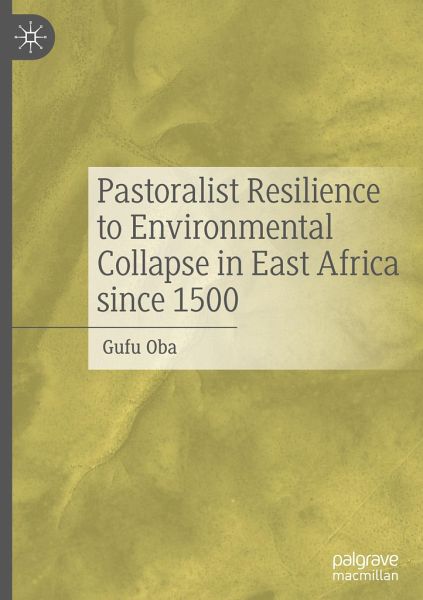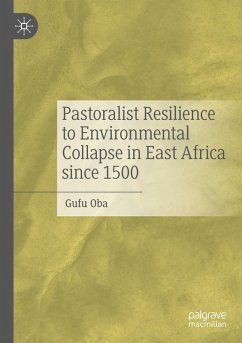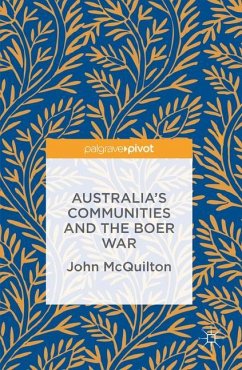
Pastoralist Resilience to Environmental Collapse in East Africa since 1500
Versandkostenfrei!
Versandfertig in 6-10 Tagen
98,99 €
inkl. MwSt.
Weitere Ausgaben:

PAYBACK Punkte
49 °P sammeln!
This book explores pastoralist/ farmers' approaches to environmental disaster management in East Africa, charting their responses and adaptations to famine, pandemics, natural disasters, and historical events. Using a dynamic adaptive cycle theoretical framework, it uses social memory to reconstruct an 'event history calendar', thus combining social memory and written historical records to reconstruct the adaptive strategies of pastoralists. It explores the climate history of the southern Ethiopian and northern Kenyan frontier, considering, in particular, the impact of the colonial period and ...
This book explores pastoralist/ farmers' approaches to environmental disaster management in East Africa, charting their responses and adaptations to famine, pandemics, natural disasters, and historical events. Using a dynamic adaptive cycle theoretical framework, it uses social memory to reconstruct an 'event history calendar', thus combining social memory and written historical records to reconstruct the adaptive strategies of pastoralists. It explores the climate history of the southern Ethiopian and northern Kenyan frontier, considering, in particular, the impact of the colonial period and independence thereafter, providing a significant contribution to debates in African environmental history.














